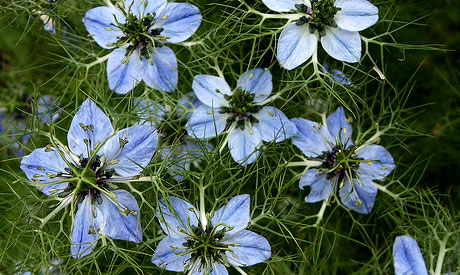
A petition by the Sum of Us demands that Nestlé "stop trying to patent a natural cure." The natural cure is Nigella sativa, commonly known as fennel flower, which has been used in traditional medicine for over 3,000 years. The petition states thatNestlé is "filing patent claims around the world to try and take control over the natural cure of the fennel flower and turn it into a costly private drug." The Sum of Us urges concerned people to put pressure on Nestlé.
Nestlé states on its website that it is “not trying to patent the fennel flower.” Instead, the company claims it has “made patent applications for a compound that can be extracted from Nigella sativa…to help treat or prevent food allergies,” and the patent “would not prevent the use of the fennel flower plant for any other purposes, including in traditional and natural remedies.”
The petition is a recent one, having been posted in April. Already, Nestlé, one of the biggest food companies on the planet, posted a response to the petition on its website. The company claims that the petition is false in stating that the company is trying to control the curative power of the fennel flower plant or prevent others from using it. The company has "made patent applications relating to molecules that can be extracted from fennel flower plant seeds or other plants to help treat or prevent food allergies," starting in 2009.
Nestlé's scientists found that thymoquinone, found in Nigella sativa seed extract, "stimulates specific receptors in the body, which may help to treat or prevent food allergy," according to the company's website. The patent, which Nestle points out has not been approved yet, "applies to the use of compositions that provide molecules that stimulate these receptors for the treatment of food allergy."
A 2012 paper by the Third World Network points out that it may seem like Nestle has "discovered a new application for thymoquinone, but dig a little deeper, and Nestlé’s claim of novelty vanishes quickly." Existing scientific literature on thymoquinone’s action on opioid receptors "establishes this effect." The article cites several studies: a paper by an Egyptian pharmacology researcher in 2000, trials in Pakistan using thymoquinone to help recovering drug addicts, and Iranian scientists studying the effects of thymoquinone’s interaction with opioid receptors on petit malepileptic seizures in 2004 and 2005.
What about linking thymoquinone to preventing allergic reactions? Nigella sativa has been used for "probably thousands of years…to treat digestive ailments…black seed is also traditionally used to treat asthma and respiratory inflammation," the TWN paper states. The traditional uses of Nigella sativa are "well known."
Photo Credit: DominusVobiscum










